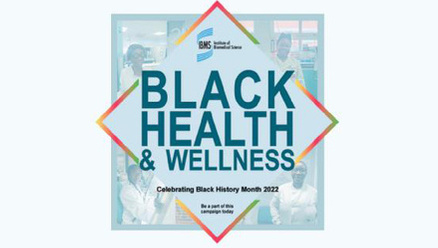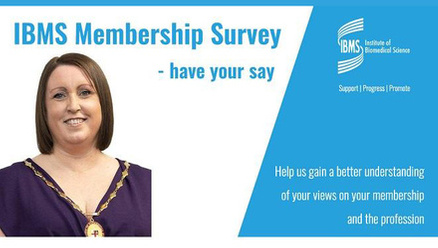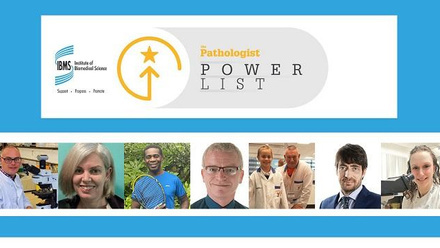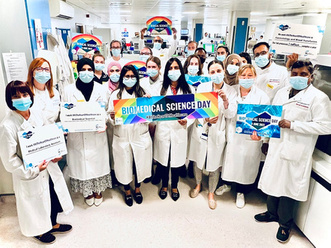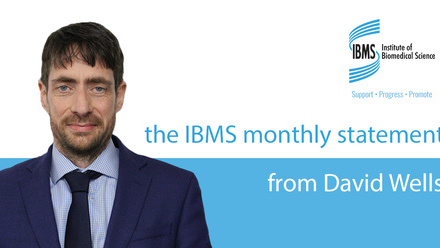IBMSpod Episode 12 - Genomic Medicine & Public Engagement
Genomic medicine uses information about a patient’s genetic makeup to improve their care and overall clinical outcome across a range of diseases. As the NHS implements genomics into the NHS, we’ll enter a new paradigm of cutting-edge diagnostics which will see new personalised treatments tailored to the individual patient routinely available.
Deborah Lakeland is a cancer genomics project manager at Lancashire & South Cumbria teaching. Hospitals. Deborah has over 30 years of experience as a biomedical scientist across several specialities including Immunology, Haematology and Molecular Pathology . She moved over to genomics to assist the 100,000 genome project.
Deborah takes us through what progress has been made so far in the field of genomic medicine, including the government’s 100,000 genome project and her role within it. She then discusses how genomic medicine has transformed therapeutics for cancer patients before outlining the major challenges biomedical scientists face in order to fully integrate genomics medicine into their practice. Later, Deborah is asked to outline how large scale testing of coronavirus patient genomes helped us to identify variant strains of SARS-CoV2 and ultimately helped us bring the pandemic under control.
We also discussed Deborah’s outreach and media work including being recognised as a Chief Scientific Officer Women in Science and Engineering Fellow for 2019/2020.
In the Quick-Fire round, Rob is curious if Deborah prefers tea over coffee, casual wear over smart wear and ab-sailing over bungee jumping!
IBMS Licentiate Charlotte Felton is a trainee clinical scientist in critical care science. Charlotte Felton explains why she feels it is so important to participate in the public engagement of biomedical science, and the initiatives she’s set-up to promote the profession and teach younger generations about careers in biomedical science including the popular ‘inspire BMS’ Twitter account.
She also tells us about why she is transitioning from a band 5 role in haematology to a new role in critical care science and what the role encompasses.

